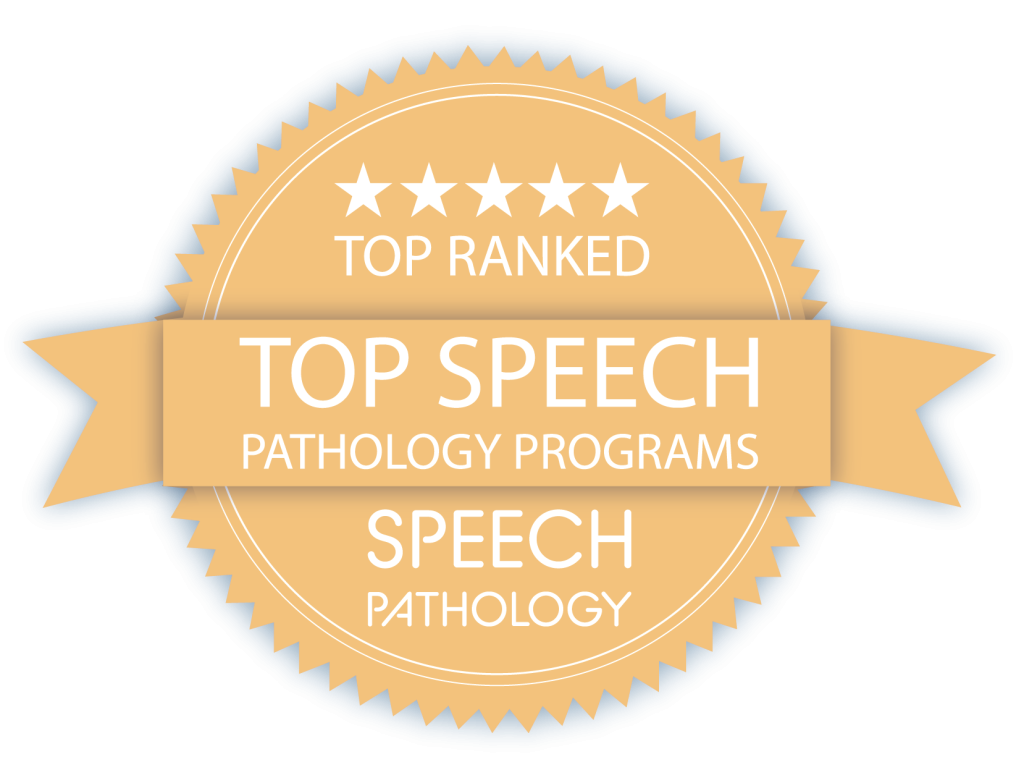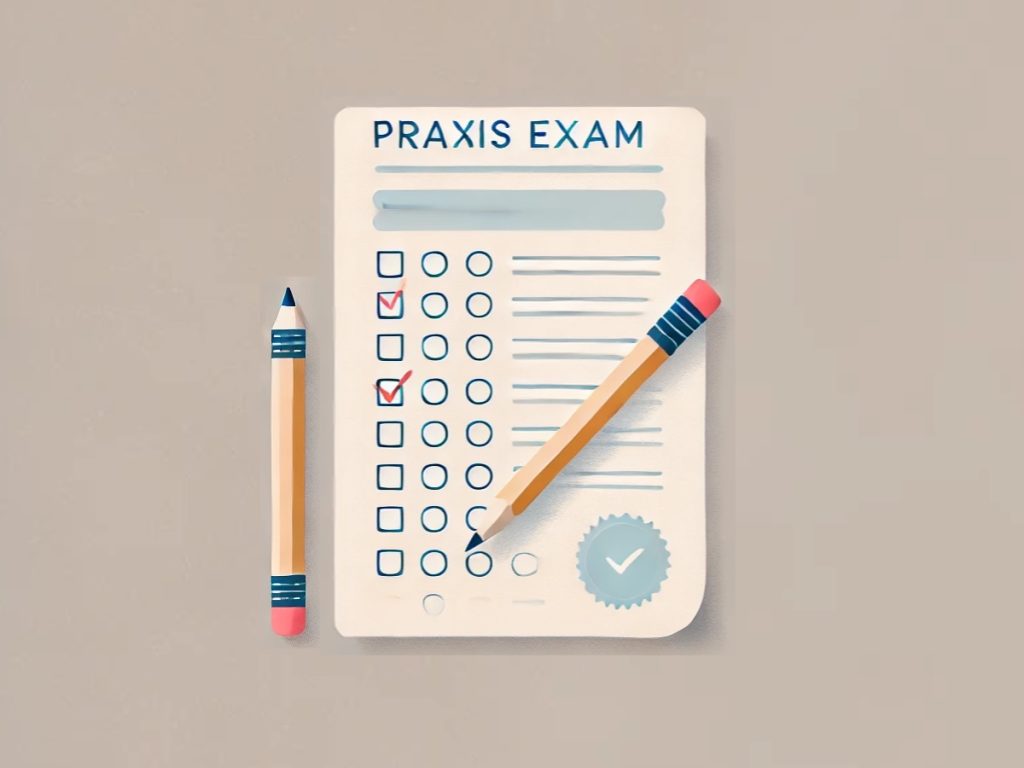Last Updated
April 14, 2025Written By
Cynthia Harris, M.S., CCC‑SLPMissouri is a great place to consider if you want to become a speech-language pathologist because of the variety of accredited SLP programs, low cost, and job availability. Public universities’ in-state tuition stands between $300 and $450 per graduate credit; this is often cheaper than the tuition in many other surrounding states. However, private institutions and out-of-state schools are more expensive. This affordability is in line with the projected 25% growth of speech pathologist jobs in Missouri in the next decade, which is higher than the national average of 18-19%. Also, Missouri has a relatively low cost of living, and the average annual salary of a speech-language pathologist is about $80,000, which makes it possible to have a comfortable life.
Graduates are provided with plenty of clinical practice in metropolitan areas such as St. Louis and Kansas City, as well as in the rural areas which require speech-language pathology services. If you are looking for a speech-language pathology undergraduate or graduate degree, or clinical training, Missouri has what it takes to meet your needs in terms of affordability, quality, and future employment.

Speechpathology.org brings you the top SLP programs in Missouri based on what students care about most: strong academics, real-world experience, and reputation. Discover leading speech pathology programs in Missouri and learn how we choose them at speechpathology.org/rankings-methology.

Saint Louis, MO - Private 4-year - slu.edu
Campus Based - Visit Website
Saint Louis University's bachelor's program in Speech, Language, and Hearing Sciences provides students with a comprehensive foundation for careers in communication health. The curriculum blends scientific knowledge with practical clinical skills, encompassing speech pathology and audiology. Students benefit from 25 hours of clinical observation and an optional clinical practicum. The program emphasizes evidence-based practice, language development, speech science, and neurological communication principles. The program requires 38 SLHS credits and a capstone project. Tuition is approximately $54,760 annually, with financial aid and scholarships available.
Campus Based - Visit Website
Saint Louis University's Master of Science in Speech, Language and Hearing Sciences (MS-SLHS) program is a comprehensive 61-credit program spanning six semesters and two years. The program emphasizes evidence-based practices for diverse populations and disorders, including communication and swallowing difficulties. Students benefit from clinical practicums each term and research opportunities. Graduates boast a 97% graduation rate, coupled with 99% Praxis pass and employment rates. Admission requires a bachelor's degree in communication sciences and disorders or equivalent coursework. Applications are submitted through CSDCAS, with assistantship consideration by February 1.
Concentration: Speech-Language Pathology - Campus Based - Visit Website
The Speech-Language Pathology concentration within Saint Louis University's MS-SLHS program provides specialized training in assessing and treating communication and swallowing disorders. This two-year, six-semester program emphasizes serving diverse populations and offers hands-on clinical practicums each term. The program has a 97% graduation rate and a 99% rate for both the Praxis exam and employment. A bachelor's degree in communication sciences and disorders, or completion of prerequisite courses, is required for admission.
Concentration: Audiology - Campus Based - Visit Website
The Audiology concentration in Saint Louis University's Master of Science in Speech, Language and Hearing Sciences (MS-SLHS) program prepares students for a rewarding career in audiology. This rigorous two-year program emphasizes clinical training in diverse settings, leading to a 99% Praxis pass and employment rate. Students participate in multiple clinical practicums, providing comprehensive experience in this rapidly growing field. The program requires 6 semesters of study and includes 61 credits.
Columbia, MO - Public 4-Year - missouri.edu
Campus Based - Visit Website
The University of Missouri-Columbia's Bachelor of Health Science in Speech, Language and Hearing Sciences prepares students for graduate studies or careers as speech-language pathology assistants. The program emphasizes communication disorders and therapeutic methods, offering a low student-faculty ratio and hands-on learning. Admission requires 30 college credit hours and a 3.0 GPA. The curriculum includes 42 hours of dedicated SLHS coursework within the 120 total credit hours.
Concentration: Speech-Language Pathology - Campus Based - Visit Website
The University of Missouri's Master of Health Science (MHS) in Speech, Language and Hearing Sciences, emphasizing Speech-Language Pathology, equips students for careers addressing communication disorders. This two-year program requires 48 credit hours, including 375 supervised clinical practicum hours. Students delve into advanced topics, with options for thesis research. A minimum 3.0 undergraduate GPA is required, and applications are due January 15th through CSDCAS. The program boasts competitive nationwide admissions and potential departmental financial aid.
Campus Based - Visit Website
The University of Missouri-Columbia offers Missouri's sole PhD in Speech-Language Pathology. This program blends research with practical experience, delving into areas like language, literacy, fluency, and aphasia. Students benefit from hands-on learning in campus clinics. A strong academic background and a passion for communication and swallowing disorders are essential for admission. Financial aid is available.
Springfield, MO - Public 4-Year - missouristate.edu
Concentration: Speech Language Pathology - Campus Based - Visit Website
The undergraduate Communication Sciences and Disorders program at Missouri State University-Springfield, with a concentration in Speech Language Pathology, is designed for students aiming for graduate studies or supporting roles in healthcare settings. It features affordable tuition and instruction from experienced clinicians, focusing on bridging communication gaps. The program emphasizes practical skills and knowledge for those looking to assist individuals in speaking confidently. 'Requires ACT/SAT'
Concentration: Audiology - Campus Based - Visit Website
Missouri State University-Springfield offers an undergraduate Communication Sciences and Disorders program with an Audiology concentration, serving as a foundation for graduate studies in audiology. The program provides comprehensive training in hearing sciences, preparing students to diagnose and manage communication challenges. With a curriculum that combines theoretical knowledge and practical skills, graduates are well-positioned for advanced studies or roles in healthcare settings. 'Requires ACT/SAT'
Online & Campus Based - Visit Website
Missouri State University-Springfield's Master of Science in Communication Sciences and Disorders with a Speech Language Pathology track is a hybrid program accredited by the CAA of ASHA. It prepares students for careers in speech-language pathology through a curriculum focused on prevention, identification, assessment, and rehabilitation of speech and language disorders. The program requires four regular semesters and at least one summer semester, offering a blend of academic, clinical, and research training to meet the communication needs of diverse populations. 'Requires GRE'
Saint Louis, MO - Private 4-year - maryville.edu
Online Learning - Visit Website
Maryville University of Saint Louis offers an online Master of Science in Speech-Language Pathology, a program meticulously designed to align with ASHA standards. This 57-credit, five-semester program stands out for its flexibility, allowing students to engage in 24/7 online learning while receiving personalized clinical support. Notably, it does not require the GRE for admission, making it accessible to a broader range of students. With a total cost of $54,906 and multiple start dates, the program is tailored for those seeking to advance their careers in speech-language pathology without compromising their current commitments. Highlights include ASHA accreditation, telepractice clinical experiences, and preparation for state licensure.
Campus Based - Visit Website
The campus-based Master of Science in Speech-Language Pathology at Maryville University of Saint Louis is a comprehensive program that prepares students for a fulfilling career in speech-language pathology. It focuses on developing knowledge, cultural competence, and professionalism in line with ASHA standards. The curriculum includes 36 credits of required coursework and 21 credits of clinical experiences, covering topics from speech sound disorders to dysphagia. Students benefit from hands-on clinical practicums and externships in diverse settings. Admission requires specific undergraduate coursework, with a deadline of February 1st. The program emphasizes evidence-based practice and prepares graduates for ASHA certification.
Saint Louis, MO - Private 4-year - fontbonne.edu
Campus Based - Visit Website
Fontbonne University offers a Bachelor of Science in Speech-Language Pathology, accredited by ASHA, providing a foundation for graduate studies or careers as speech-language pathology assistants in Missouri. Students gain practical experience in the Eardley Family Clinic, learning about communication disorders from experienced faculty. This program is perfect for those passionate about improving communication health. Requires ACT/SAT.
Concentration: working with children who are deaf or hard-of-hearing - Campus Based - Visit Website
Fontbonne University's Master of Science in Speech-Language Pathology specializes in working with children who are deaf or hard-of-hearing, offering a curriculum that blends academic rigor with practical experiences. With a 100% national exam pass rate and post-graduation placement, students engage in therapy camps and clinical placements, including the Eardley Family Clinic. This program is ideal for those aiming to impact the lives of children with hearing challenges, providing a family-centered therapy approach. Requires GRE.
Concentration: working with adults with neurogenic communication disorders - Campus Based - Visit Website
Focusing on adults with neurogenic communication disorders, Fontbonne University's Master of Science in Speech-Language Pathology boasts a 100% post-graduate placement rate. Students benefit from hands-on training at the Eardley Family Clinic and therapy camps, preparing them for diverse career paths in healthcare settings. This program is tailored for professionals seeking to specialize in adult communication disorders. Requires GRE.
Kirksville, MO - Public 4-Year - truman.edu
Campus Based - Visit Website
Truman State University's Master of Arts in Communication Disorders stands out for its ASHA-accredited curriculum designed to mold adept speech-language pathologists. This program, rooted in over five decades of excellence, combines rigorous academic coursework with extensive clinical practicum, ensuring students master the complexities of speech, language, and hearing disorders. Offering a 46-credit curriculum, it mandates 400 clinical contact hours, exposing students to a wide array of clinical settings and populations. With a minimum GPA requirement of 3.00 and GRE scores considered for admission, the program also features an optional thesis track for those inclined towards research. Highlights include diverse internship opportunities and a campus-based speech clinic, preparing graduates for successful careers across various healthcare and educational settings.
Kansas City, MO - Private 4-year - rockhurst.edu
Campus Based - Visit Website
Rockhurst University's Speech-Language Pathology program in Kansas City, MO, stands out for its dynamic, campus-based approach aimed at students eager to make a difference in communication health. Emphasizing a blend of theoretical knowledge and practical skills, the program prepares students to effectively diagnose and treat a wide range of communication disorders. Rooted in a Roman Catholic tradition and recognized for being military-friendly, Rockhurst offers a supportive yet challenging environment. Students benefit from hands-on experiences, ensuring they're well-prepared for professional success. Highlights include a comprehensive curriculum and a focus on real-world application, making it an ideal choice for aspiring speech-language pathologists.
Kirksville, MO - Private 4-year - atsu.edu
Online & Campus Based - Visit Website
A.T. Still University of Health Sciences offers a Master of Science in Speech-Language Pathology, blending residential and online learning over 22 months. This 66-credit program stands out for its focus on culturally responsive care, evidence-based practices, and interprofessional collaboration. Unique highlights include a bilingual service focus, nationwide clinical experiences, and no GRE requirement. With a cohort of 45 students annually, the program emphasizes a comprehensive approach to treating speech, language, and swallowing disorders, preparing graduates for diverse clinical settings. Admission requires a bachelor's degree with a minimum 3.0 GPA, processed through CSDCAS.
Online & Campus Based - Visit Website
The Master of Science in Speech-Language Pathology at A.T. Still University is a 66-credit hybrid program designed to equip students with skills for addressing communication disorders across diverse populations. Located in Mesa, Arizona, the program offers a multicultural clinical focus, telepractice training, and preparation for ASHA certification. Students benefit from interprofessional education, advanced clinical instrumentation training, and national placement opportunities. The curriculum covers assessment and treatment from infancy to geriatrics, emphasizing evidence-based practices. Admission prerequisites include a bachelor's degree, prerequisite coursework, and a 3.0 GPA minimum, with a strong emphasis on culturally responsive clinical approaches.
Cape Girardeau, MO - Public 4-Year - semo.edu
Campus Based - Visit Website
Southeast Missouri State University's Master of Arts in Communication Disorders is a nationally accredited program designed to equip students with the expertise needed for a successful career in speech-language pathology. The curriculum is a blend of theoretical knowledge and practical clinical experience, aimed at preparing graduates for national certifications and Missouri state licensure. With a strong emphasis on research, development, and hands-on therapy hours, the program boasts a 100% PRAXIS exam pass rate and a 96.61% completion rate. It offers both in-person and virtual open houses for prospective students to learn about the program's comprehensive approach to communication disorders. A graduate leveling program is available for those needing prerequisite courses, with an option for online completion. The program is highly competitive, focusing on career readiness and includes preparation for the PRAXIS exam and Missouri DESE credentials.
Warrensburg, MO - Public 4-Year - ucmo.edu
Campus Based - Visit Website
The University of Central Missouri's Master of Science in Communication Disorders stands out for its exceptional 99% program completion and 100% employment rates, reflecting its commitment to student success. Accredited since 1977, the program offers a comprehensive curriculum blending academic rigor with extensive clinical practice, including specialized training in adult and pediatric swallowing disorders, autism communication, and more. Students engage in problem-based learning and interprofessional collaboration, supported by faculty with clinical expertise. The program boasts state-of-the-art facilities like voice and swallowing labs, AAC and feeding clinics, and Parkinson's disease therapy programs. Admission requires a 3.0 GPA, with deadlines on February 1 for summer and March 1 for fall. Financial aid options are available. Requires GRE.
A bachelor’s degree in Communication Sciences and Disorders (CSD) in Missouri, as a rule, requires a high school diploma or its equivalent and a good GPA and scores in standardized tests for admission. In the first year, students are expected to take about 120 credits which provide them with a general education in speech and hearing science, phonetics and language development.
After graduating with an SLP bachelor’s degree, many graduates become Speech-Language Pathology Assistants (SLPAs), work in other healthcare or education support roles, or prepare for advanced studies and applications to graduate programs. The career outlook for SPLAs is ok in Missouri with an average annual salary of $30,000 to $40,000. For a higher annual salary and more job responsibilities, many speech pathology bachelor’s degree grads continue on to become a licensed Speech-language pathologist.
A master’s degree in Speech-Language Pathology (SLP) is the minimum degree requirement to practice as a fully licensed SLP. Most master’s degrees of speech pathology require a bachelor’s degree in CSD or completion of specific prerequisite ‘leveling’ courses. Applicants will likely need to submit letters of recommendation and have maintained a GPA of 3.0 or above in their undergraduate work. Master’s degrees in SLP average 50-60 credits and take approximately 2 years to complete. The tuition costs can range from $300 – $450 per credit for students at public universities taking advantage of in-state tuition.
Speech-language pathologists in Missouri can expect to earn an annual salary of $80,000 and up depending on whether they achieve ASHA’s CCC-SLP certification. This higher earning potential can usually justify the extra tuition as compared to that of a bachelor’s program. If you can’t find many in-state master’s programs that fit your schedule, some fully accredited online speech pathology programs can be great alternatives to ensure that Missouri students have options and good careers in both clinical and educational practice.
There are 2 main doctorate degrees in speech pathology: a PhD and clinical Doctorate in Speech-Language Pathology (SLPD). Missouri currently only has 1 PhD program available. The University of Missouri (Columbia) has a strong PhD option for those looking to continue their education. The research focused program in Speech, Language, and Hearing Sciences at the graduate level typically requires a master’s degree or its equivalent for admission, along with strong letters of recommendation, a competitive GPA (often 3.5+) and a clear research statement.
To graduate, students will complete a pretty hefty load of coursework, teaching responsibilities, and a dissertation. In-state PhD candidates typically pay between $300 and $450 per credit in tuition, significantly lower than many other states. This degree prepares graduates for careers in academia, scientific research, and leadership roles in the development of clinical guidelines.
In contrast to the research focused PhD program, the SLPD is designed to enhance advanced clinical speech pathology practice. Unfortunately, there is not currently and SLPD program available in Missouri, so prospective students commonly seek fully accredited online or out-of-state programs. Admission requirements for SLPD offerings elsewhere often include a master’s in SLP, a current CCC-SLP, and documented clinical experience. These programs tend to run 30–45 credits over two to three years, preparing graduates for high-level clinical oversight, policy advocacy, and managerial positions. While SLPD salaries mirror experienced SLP pay, PhD holders often command higher earnings in research, teaching, and administrative roles.
Getting your Missouri SLP License requires the following criteria: A master’s degree or above in Speech-Language Pathology from an ASHA Council on Academic Accreditation (CAA) program. It also required completing at least 400 clinical hours, including 25 observation hours and 375 hours of patient contact. You must also pass the Praxis exam in Speech Pathology before starting a clinical fellowship of about 36 weeks of full time work under supervision. The provisional license is issued by Missouri’s Board of Healing Arts during that fellowship. Licensure application follows fellowship completion. It entails a background check and the submission of forms based on your education, exam scores, and supervised experience.
Speech Pathologists must have their Missouri SLP License renewed every two years, which requires 30 hours of continuing education. Maintaining up to date with new therapy methods, ethics standards and clinical technologies maintains your practice and, in turn, your licensure.
If you want to be an SLPA, you will have to obtain a bachelor’s degree in Communication Sciences and Disorders or its equivalent. If you have already completed a bachelor’s degree, but it is not in a related field, there are 21 more CSD specific credits that can be taken in anatomy/physiology of speech, phonetics, speech language development and disorders, and clinical methods that will be considered the equivalent of a CSD bachelor’s degree. You will need 50 clinical hours with at least 25 hours of supervised observation and 25 hours of hands-on clinical training before you can obtain your Missouri SLPA License.
Once you meet these requirements, you can apply for licensure through the state. Application will require a background check and fee payment. There aren’t any required tests to become a SLPA in Missouri, but ASHA does offer a Speech-Language Pathology Assistants Certification (C-SLPA) that you can get. Once you have your license you will be able to practice under a licensed SLP.
The speech-language pathology (SLP) programs in Missouri are traditionally four years for a bachelor’s degree in Communication Sciences and Disorders and two more years for a master’s degree in SLP. But if you are looking for the fastest SLP programs, there are some pretty good shortcuts available to you. For instance, Saint Louis University has a rather innovative five-year accelerated speech pathology program that enables exceptional undergraduates to pursue both a bachelor’s and master’s degree and thereby qualify for state licensure.
Normally, a regular bachelor’s degree is 120 credit hours and a master’s degree is 50-60 graduate credit hours over two years. Thus, through the combination of these requirements, it is possible to eliminate the need for almost a full year, thus allowing students to enter the speech-language pathology profession a year earlier.
Missouri does not have any combined master’s doctoral (PhD or SLP D) programs, but the University of Missouri in Columbia does offer Missouri’s only PhD in Speech, Language, and Hearing Sciences. In research or academia, you can usually move straight from the master’s to the PhD, depending on your interests and the availability of supervisors in the faculty. No matter the path, you may want to finish sooner to take full advantage of Missouri’s solid job market for SLPs — which is growing faster than in many surrounding states — and get a start on a career that can be both rewarding and lucrative.
| School Name | Highlights | Retention & Grad Rates |
|---|---|---|
| Saint Louis University |
|
|
| Missouri State University-Springfield |
|
|
| Southeast Missouri State University |
|
|
If you are looking to keep the costs of your tuition fees to a minimum, there are several cheap SLP programs in Missouri that offer a good standard of education at an affordable price. Some state universities, for example, Truman State University of Southeast Missouri State, provide Communication Sciences and Disorders bachelor’s degree at $250-$370 per credit for in-state students, which is much cheaper than in many other states.
If you want to become a fully licensed speech-language pathologist, master’s programs at public universities like Missouri State or University of Central Missouri are usually $300-450 per graduate credit in-state. This may not seem like a lot, but if you are looking at 50-60 credits, this can save you a significant amount when compared to the private tuition rates that may be more than $700k per credit.
For the students planning to pursue research or academic careers, University of Missouri’s PhD in Speech, Language, and Hearing Sciences has the same price structure as the master’s level PhD programs – $300 – $450 per credit. Many PhD students are also able to get graduate assistantships or fellowships that include tuition waivers and a stipend that greatly reduces the overall costs. Despite the fact that Missouri does not have an SLPD, all the accredited online or out-of-state SLPD programs are available to you if you want to pursue a clinical doctorate. Either way, the in-state tuition and potential funding sources make Missouri a cost-effective location to begin your SLP education.
| School Name | Highlights | Annual Estimated Tuition & Fees |
|---|---|---|
| Missouri State University-Springfield |
|
|
| University of Missouri-Columbia |
|
|
| University of Central Missouri |
|
|

If you are interested in pursuing a career in SLP and have been researching licensing requirements or are simply interested in learning more about SLP

If you have ever been researching speech-language pathology careers and come across the words ‘speech pathologist’ and ‘speech therapist’, you might wonder if they are

If you are pursuing the position of a speech-language pathologist, then you may have heard of the Praxis exam from your professors, classmates, or even
Our mission is to empower future speech-language pathologists by providing the most accurate, up-to-date, and accessible information available. Our team is dedicated to guiding individuals through the journey of becoming an SLP—whether you’re just exploring the field or actively pursuing a degree. We specialize in delivering reliable insights on state-by-state availability, affordability, and the fastest paths to certification and licensure. Our goal is to help you make informed decisions based on real data, trusted resources, and the evolving needs of the profession. With a strong commitment to educational clarity and career transparency, we’re here to support and simplify your path toward a rewarding future in speech-language pathology.
PLEASE NOTE: The contents of this website is for informational purposes only. All trademarks are the property of their respective trademark holders.